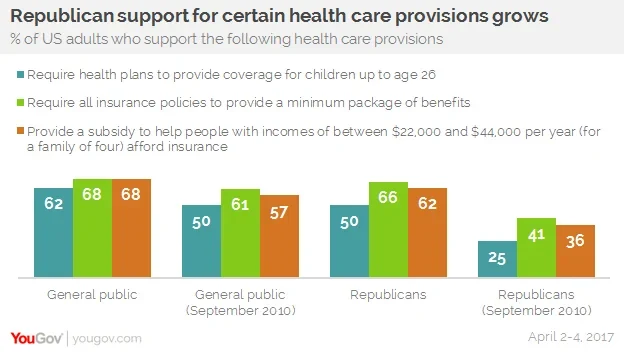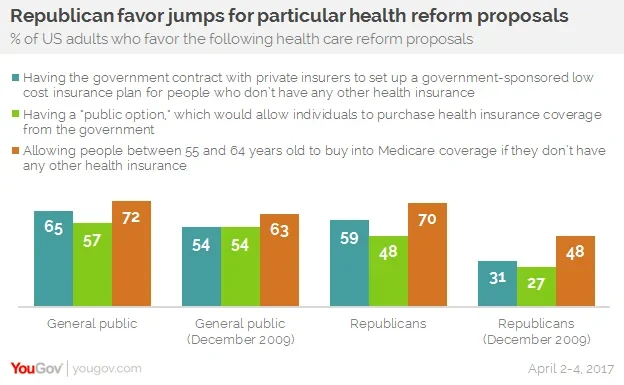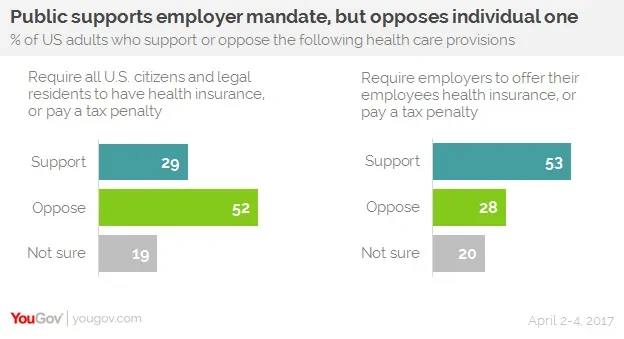In stark contrast to opinions held in 2009 and 2010, a majority of Republicans presently favor several aspects of the ACA
As even Republicans have grown accustomed to many of the components of Obamacare, majorities of them now favor the same provisions they once opposed when the law was created in 2010. In the latest Economist/YouGov Poll, only the individual mandate is clearly rejected by them — but Americans in general don’t like that part of the Affordable Care Act.
This change in how Republicans view health care may make finding a GOP-compromise even more difficult than it has been so far.
In 2009 and 2010, most Republicans opposed many of the law’s provisions. Majorities of Republicans, for example, opposed keeping children on their parents’ plan until the age of 26, and opposed providing subsidies to families with annual incomes between $22,000 and $44,000 to help them buy insurance. Less than half supported requiring a minimum set of benefits.
Recent negotiations within the GOP to induce the House Freedom Caucus to support the Republicans health care alternative included a proposal to reduce required insurance benefits. But today, two in three Republicans favor a set of required benefits — an increase of 25 points since 2010.

In 2009, Republicans seemed generally opposed to government involvement in providing health insurance options. Fewer than a third wanted the state to offer a government-sponsored insurance option, and even fewer supported a “public option.” Just under half favored letting those between the ages of 55 and 64 buy into the already-existing Medicare program for seniors.
Today, however, many Republicans, and even larger percentages of the general public, support those options. The jumps in support from Republicans on these specific proposals range from 21 to 28 points.

Many Republicans are even open to options that party leaders would certainly reject. Nearly half would expand Medicare to cover all Americans. As many Republicans would support a federally funded health insurance system covering every American as would oppose it. Both of those options get the support of six in 10 Americans overall.
But clearly what gets funded will need to be paid for. By two to one, the public accepts the concept of an employer mandate (with Republicans evenly divided). It's harder to get support for an individual mandate, as it has been throughout the entire health care debate. Today, a majority opposes that mandate, and fewer than half of Democrats support it.









